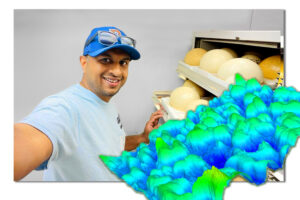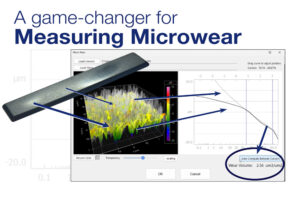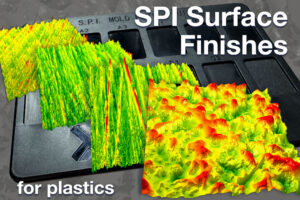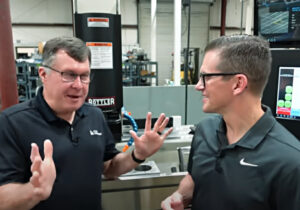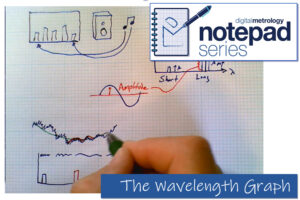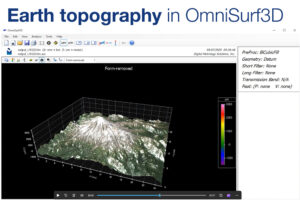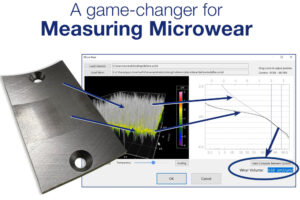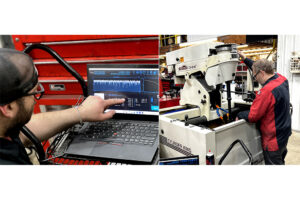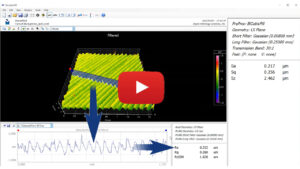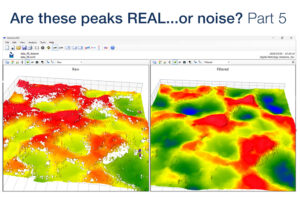OmniSurf3D Powers Eggshell Research
3D surface texture analysis goes into so many interesting places! Dr. Thilina De Silva is part of a team creating a database of eggshell surface topographies. The data may reveal new understandings about living and extinct birds and their ecology and behavior. As it turns out, our OmniSurf3D software has proven to be the perfect tool for analyzing the data. Read More
60-Second Surface Analysis Video – Microwear Analysis
Wear can take time. That’s why in most wear analysis, we accelerate the process. We get an answer, but just not a representative one.
The new Microwear Analysis in OmniSurf3D lets us compare worn and unworn surfaces to see how the surface changed under actual conditions. It’s a game-changer for wear measurement! Find out how it works in this short video. Read More
SPI Surface Finishes in the Surface Library
SPI surface finishes let plastics manufacturers specify the right texture for appearance, feel, and grip. We’ve just added 12 new SPI Finish datasets to our Surface Library. Check them out, as well as Mold-Tech and VDI plastic textures, and hundreds of other 3D surface textures. And download a trial version of OmniSurf3D surface texture software to open and explore the library datasets, and your own data as well! Read More
Roughness matters! An interview with Lake Speed, Jr.
250,000 views! Check out our recent video discussion on surface texture with Lake Speed, Jr. aka “The Motor Oil Geek.” Lake invited Digital Metrology’s Mark Malburg in to underline the fundamental role of surface roughness in making durable, efficient engine systems. It's eye-opening! Watch the video here.
By the way, you can download and explore all of the surfaces in this video from our Surface Library! Read More
Notepad Series Video: The Wavelength Graph
What song is your surface playing? It’s an odd thing to ask…but it’s a helpful way to think about surface texture. The Wavelength Graph, or Wavelength Content Graph, shows us how loud the “notes” are in our surface texture.
In this video we’ll show you how to read the wavelength content graph and how to use it to explore and understand your parts and processes.
The wavelength content graph also provides a great way to visually choose your filtering. Check out our Interactive Filtering with OmniSurf3D video for more.
Want to try it for yourself? Download a trial version of OmniSurf3D today! Read More
Earth Topography in OmniSurf3D
Surface texture analysis can be fun—you always see new things that numbers just can’t show you! Here’s a fun example: did you know that you can download earth surface topography and satellite imagery into OmniSurf3D software? Now you can use our surface roughness tools to analyze meters and kilometers, just like you’d look at microns and millimeters! See how easy it is to do in this video. Read More
MicroWear Analysis in OmniSurf3D
The new Microwear Analysis in OmniSurf3D is a game-changer for wear measurement. It lets us compare “before” and “after” data to accurately measure microscopic amounts of wear that occur within the surface texture. This video shows how it works. Read More
KD Customs makes it happen with TraceBoss+
Kyle Duernberger of KD Customs had a problem. His company had made a major investment in engine block machining, but their engines were burning oil, and "tried and true" solutions weren't working. TraceBoss+ let them see their surfaces and gave them hard data to solve their process issues. “The minute we started honing that way," says Duernberger, "we got deep valleys, controlled peaks, and good Rk values.” Read More
2D Surface Roughness Analysis Streamlined in OmniSurf3D
Our OmniSurf3D software has always included the ability to analyze slices of your 3D data via our 2D OmniSurf software. 2D analysis is now built into OmniSurf3D, which greatly streamlines the process. Great visualizations and interactive tools make this one of the best 2D analysis experiences available. Check out this video to see the new features and learn how they work. Read More
60-Second Surface Analysis – Are these peaks real, or noise? Part 5
Are the peaks in your surface texture data real, or noise? There’s another possibility: your analysis may also be creating issues! In Part 5 of our series, we show how comparing analyzed data to raw measurement data can sometimes help you to determine whether peaks are real features or artifacts of the analysis. Read More

